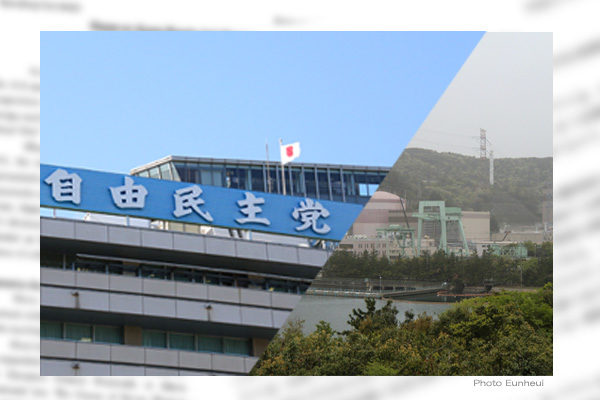While solar photovoltaics and wind power generation have been touted worldwide as clean energy alternatives to nuclear power, these renewable energies are now recognized as insufficient as a source of electricity, and nuclear power has begun to be strongly promoted as a trump card to combat global warming. Lessons learned from the Fukushima Daiichi Nuclear Power Station accident have enhanced the safety of nuclear plants around the world, with innovative nuclear reactors beginning to be constructed.
In Japan, campaigns have effectively started for the ruling Liberal Democratic Party’s presidential election to select the next prime minister. Given that energy supply is the foundation of the nation's existence, the promotion of maximum nuclear power use is a prerequisite for the next prime minister.
Nuclear power promotion is a global trend
The promotion of nuclear power has already become a global trend, although the trend is not known well in Japan.
At an annual meeting of the American Nuclear Society I attended in June, for which the conference hall of Las Vegas's largest hotel was packed to capacity of some 1,200 people, the U.S. energy secretary and power utility executives joined leaders from IT (information technology) companies such as Meta, Microsoft, and Google who held panel discussions. In the United States, demand for electricity is increasing rapidly due to the fast spread of generative AI (artificial intelligence). At the meeting, the society adopted a declaration to triple nuclear power generation from 100 gigawatts (equivalent to 100 nuclear reactors capable of generating 1 million kilowatts each) at present by adding 100 gigawatts in the 2030s and as much in the 2040s, and to attain carbon neutrality at the same time.
At the International Conference on Nuclear Engineering held in Prague in August, Prof. Leon Cizelj, a former president of the European Nuclear Society, presented a map of CO2 emissions in Europe. Green-colored countries with lower emissions on the map included Norway, Switzerland, Finland, Sweden, and France that are known for robust nuclear and hydro power generation. Germany, which has spent a lot of money on renewable energy, became a dark brown-colored country with higher emissions due to the fact that CO2 emissions increased this year because all nuclear power plants were shut down.
Koizumi, Ishiba, and Kono are disqualified for their energy policies
Japan has made huge investment in solar photovoltaic and other renewable energy power generation that has been promoted by Taro Kono. During the last LDP presidential election campaigns, Kono vowed to allow the restart of nuclear power plants confirmed safe, but insisted at the same time that he would not permit the operation of a nuclear fuel reprocessing plant in Rokkasho village, Aomori Prefecture. Unless the reprocessing plant starts commercial operations, spent nuclear fuel pools at nuclear power plants all over Japan will be filled up, forcing these plants to be shut down. Kono's argument is thus anti-nuclear itself.
Shortly after becoming environment minister, Shinjiro Koizumi told an environment-related meeting in New York that Japan would make “sexy” efforts to reduce CO2 emissions. When asked by a reporter how to reduce, he fell silent, revealing the emptiness of his statement. At a press conference immediately after his appointment as environment minister, he said, “I would like to think about how to eliminate (nuclear power plants), instead of how to keep them.” Koizumi thus sided with anti-nuclear groups.
When announcing his candidacy for the LDP presidency this time, Shigeru Ishiba said: “I will do my utmost to eliminate nuclear power plants. I believe we can reduce the weight of nuclear power plants by maximizing the potential of renewable energy.” As is the case with Kono and Koizumi, Ishiba fails to be qualified to become prime minister as far as energy policy is concerned.
Tadashi Narabayashi is a specially appointed professor at the Tokyo Institute of Technology and a director at the Japan Institute for National Fundamentals.


